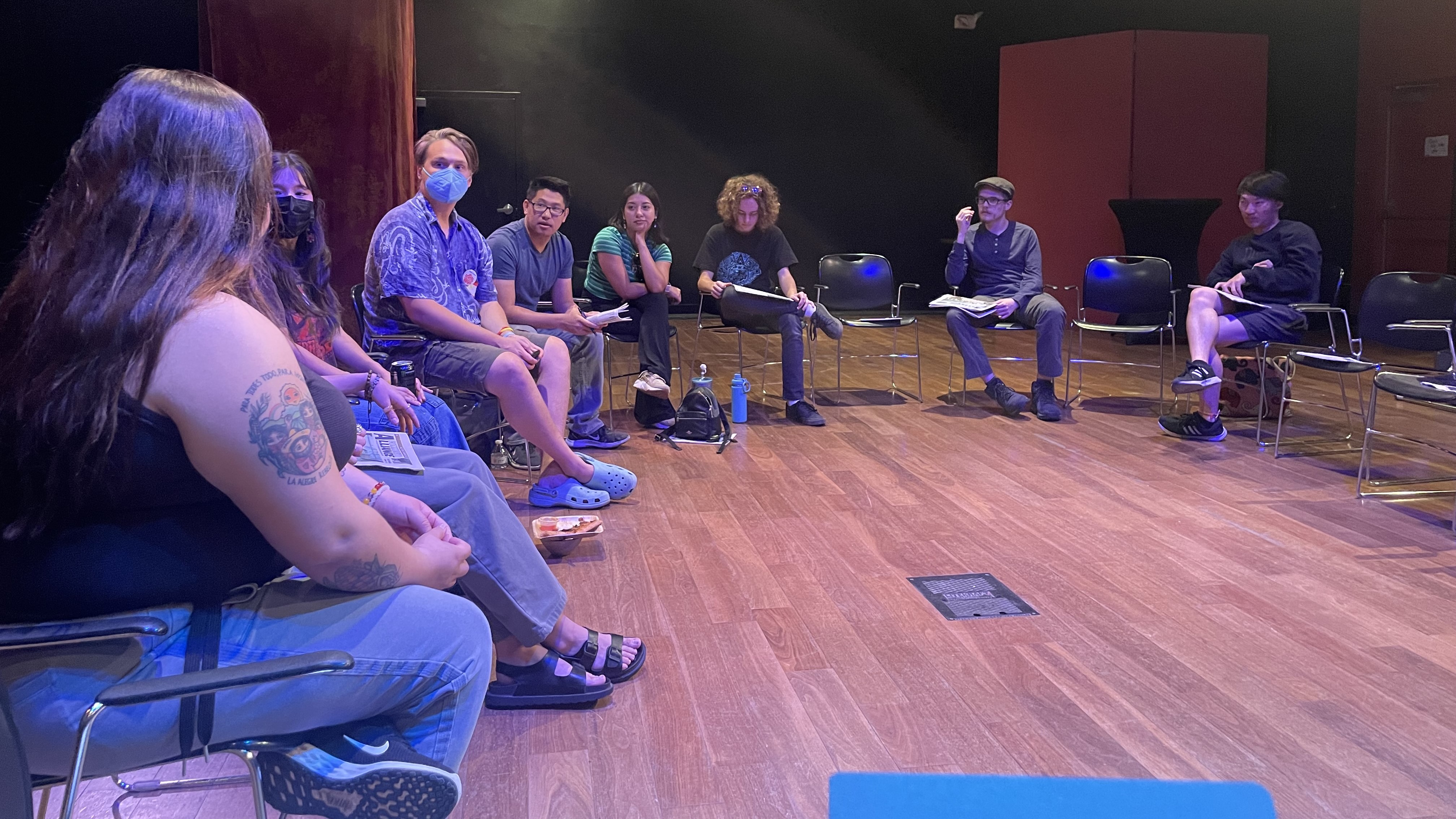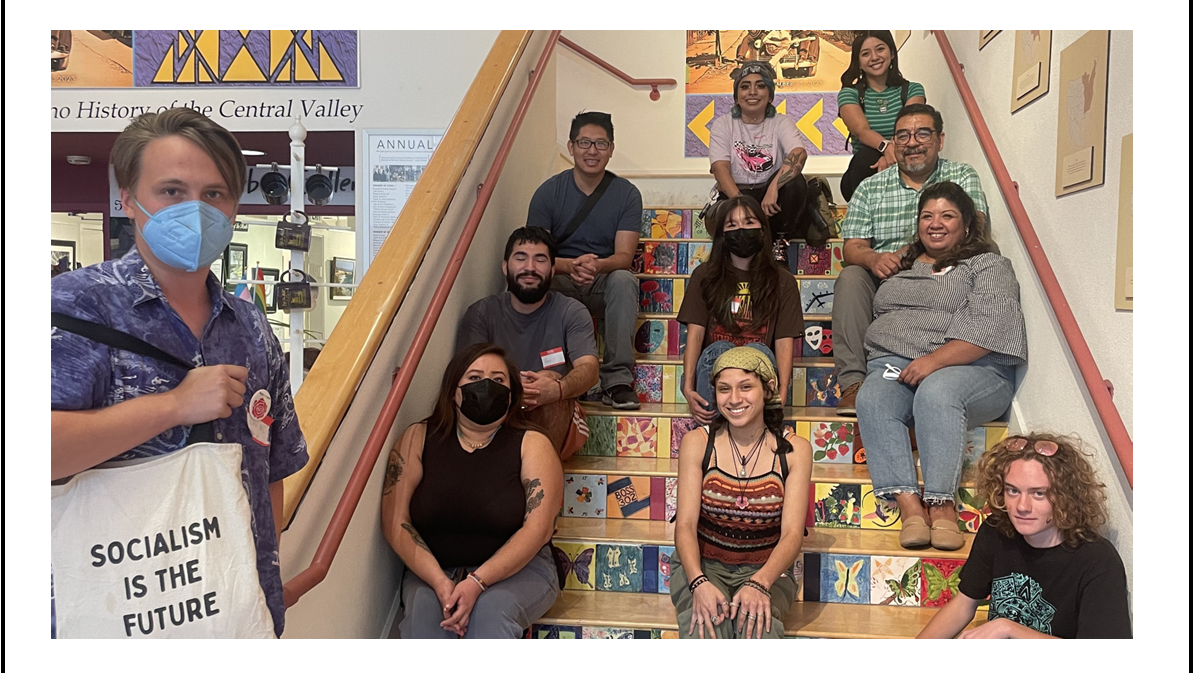
Minerva Mendoza
Social change will only happen when we build our own institutions and change those that suppress youth and families of color.
Sixteen young adults met at the AFSC Pan Valley Institute’s People’s Platica: Land, Food, and Suppression round table on September 16. The first session of discussion was the Farm Bill. PVI’s Economic Justice program coordinator, Estela Galvan, and Natalie Moreno, ArteVism alumnus, gave a brief presentation on the background and current status of the Farm Bill.
For most participants, this was the first time they had heard of the Farm Bill. To the participants' surprise, the Farm Bill includes crop insurance and rural development but does not include farm and food workers’ rights, school meals, or WIC. What was most confusing to them was that the Farm Bill provides funding for SNAP benefits but not WIC.
Participants shared their concern about the food system becoming unsustainable with constant recalls, including baby formula. They shared their frustration with how stores have begun to lock away formula and questioned why. Participants see a need to address the root causes of poverty rather than keep food away from people. Merced youth participating in the platica consciously reaffirmed that poverty is an implicit form of segregation.
Housing came out as another issue impacting Merced residents. Participants shared that new housing in Merced is only developed on the side of town where the upper-middle class can afford expensive homes. Public transportation only seems to cater to the needs of people who have a middle-upper income. This sector of the population are the ones who can afford to buy from stores with fresh fruits and vegetables.
Meanwhile, people on the side of town where immigrant farm-working families live only have access to cheap and poisoned food. In their neighborhood, liquor stores abound, and oil producers contaminate water. These families lack transportation and live in inadequate housing.
Participants expressed that change will not happen only by getting out to vote. They acknowledged that electoral organizing is the bare minimum. We should support candidates who share a joint mission and vision for the communities we care about. Communities that have experienced entrenched marginalization find actual social change hard to achieve.
There was agreement that voting is not appealing to our youth because they learned that one party is too often equal to the other when designing policies that matter to us.
The best strategies identified for bringing change are:
- Learn from our history, the Zapatistas, the Chicano Movement, and the Black Panthers
- Learn more about abolition
- Learn how to build community for each other
- Show up for each other
- Build trust in order to challenge systems created to segregate us
Youth participating in the People’s Platica clearly understand that power will not solely be built with elected officials and that we must continue creating spaces ourselves. Social change will only happen when we build our own institutions and change those that suppress youth and families of color.
The youth in California's Central Valley dream of spaces to keep each other safe and practice mutual aid. These spaces would center life, land, and healing. Merced youth dream of a world where people are no longer tired and just trying to survive.

Minerva Mendoza